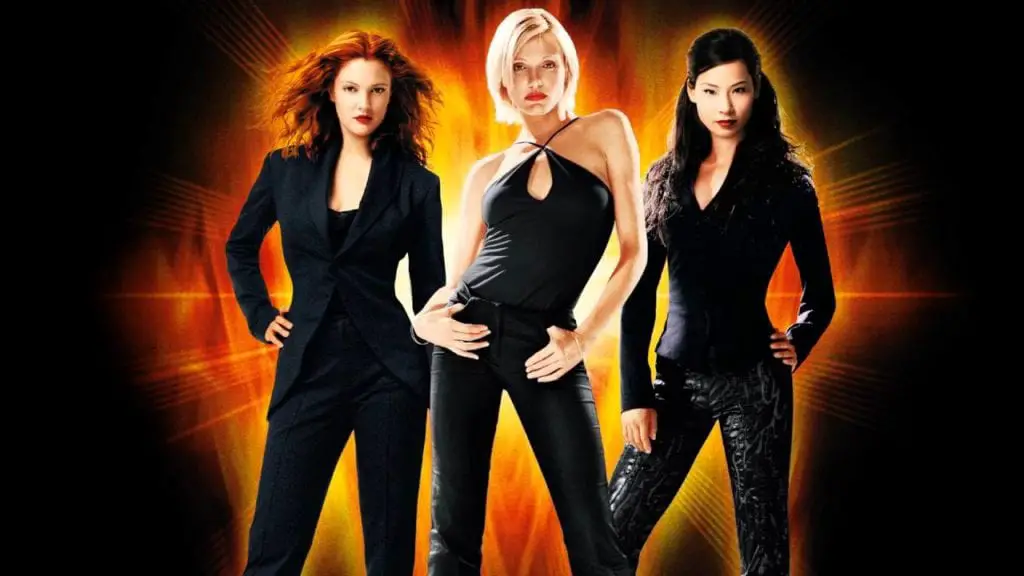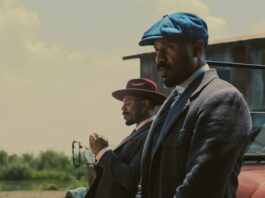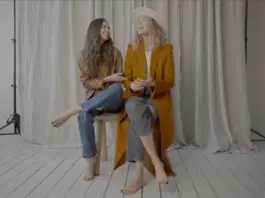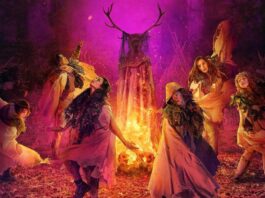There are films that change your life, and then there are films that are simply part of your life. Ingrained in your memories, as significant to your growing up as your first ice cream cone or conversation with a crush. I have a list of films that sit on the timeline of my existence like beacons signifying different stages of life. The Lion King, Jurassic Park, Indiana Jones, Moulin Rouge!, Scream, Rebel Without a Cause, The Social Network. There are many more.
Today, I’m going to talk about just one film in particular that sits in this timeline of a life soaked in cinema. It’s there for less significant reasons than Jurassic Park (my childhood summed up), and less intellectual reasons than Rebel Without a Cause (the film that sent me to film school), but this movie is nevertheless incredible, iconic, and important to me.
That film is Charlie’s Angels.
You got it — the extraordinarily dated, over-the-top, sexy action-comedy flick of the year 2000. The one that’s rated 68% on Rotten Tomatoes and a mere 5.5 on IMDb.
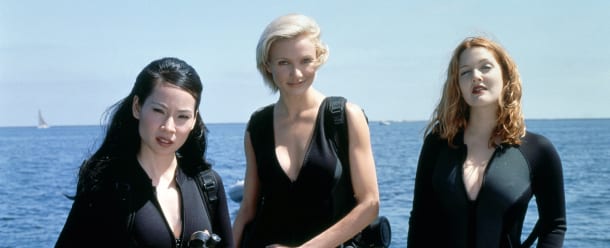
2017-Hollywood loves dredging up relics from our pasts, so Elizabeth Banks is rebooting the movie with a fresh cast and likely a similar comedic spin for 2019. Like all things recycled, we oughta know where they came from, so what better excuse to rewatch a classic from my preteens than this news?
Whether you watched it yourself or your parents did, most of you will be old enough to know that Charlie’s Angels (2000) is not the original. That honor goes to the 1976 TV series, best known for starring Farrah Fawcett in a mere 29 of its 110-episode run.
To best explain why this film is so significant to me, we have to take a look back at the original series and embark on a little history lesson.
When you examine what made Charlie’s Angels the series so popular when it first aired, two things stand out. The deliberate sex appeal of the female characters and the concept of three strong, smart, crime-fighting women. Critics of the era either dubbed it mere “jiggle TV” (three guesses what that phrase refers to), or praised the show for its interesting and exciting characters who spent most of every episode in various disguises to secretly track down criminals. Unlike the later adaptation which is pure comedy, the original series was ultimately classified as a drama. The episodes I remember elevated the lead females’ brains way above their male enemies and obstacles.
In season one, the angels are assigned to uncover a dance studio blackmail scheme. Farrah Fawcett’s character Jill takes on the role of dance student, using her obvious charm and attractiveness to convince the dance teacher to take her on. This works ridiculously well and the dance instructor instantly falls for her. Meanwhile, Sabrina (Kate Jackson) also arrives disguised as a would-be dancer, albeit as the “stupid, ugly, but rich” one. The sketchy dance teacher then pursues her instead for her apparent fortune. The opposing disguises, one based on strong sex appeal and the other on ugliness to appear weak and vulnerable, both end up achieving the same results.
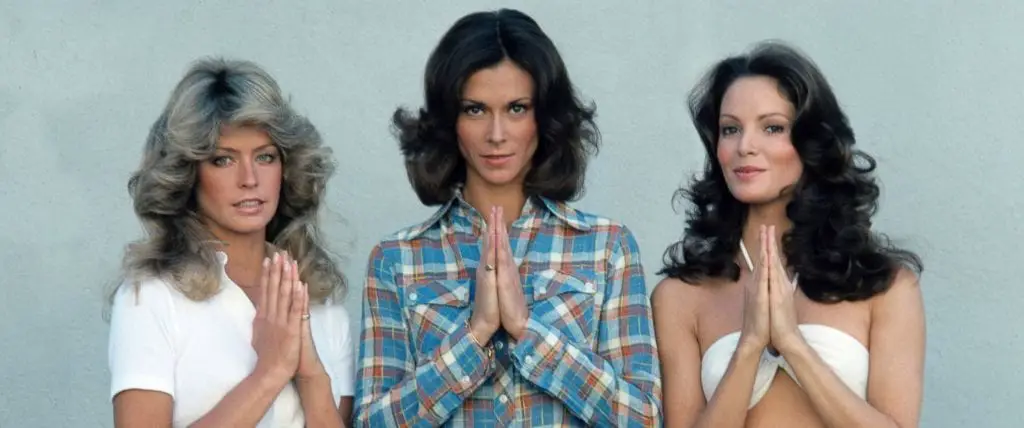
So while the show was criticized (or in some cases, praised), for its fanservice (this episode alone contains two scenes in which a gross old dude begs Fawcett’s character to dance with him and she gives in), the three angels are able to prove their intelligence through a multi-layered skill set that’s more than just their ability to run without a bra. And regardless of the angle they take, the men are just as dumb and fall for it every time. You’d think a criminal running a complex blackmail ring could see through Sabrina’s giant glasses and constant collection of weird hats to consider that something might be up, but no, he’s too focused on a pile of money he has no proof even exists.
By the time we arrive at the Charlie’s Angels movie (which is, by the way, canonically a continuation and not a reboot despite the partial genre shift), this blend of titillating action and women outsmarting idiot men reaches a peak.
Before we get into that, I must acknowledge: this film is RIDICULOUS. While the original series was a little out-there at times, it still fit well into the dramatic context of the show. Flip the switch and make Charlie’s Angels a bald-faced comedy, and apparently you get an opening scene that includes Drew Barrymore skydiving while disguised as a large black man and Cameron Diaz wearing a gold bikini for no logical reason whatsoever than to look amazing.
It’s excessively silly and contains multiple cringe-worthy counts of racism and sexism. This film is honestly a total mess. But what Charlie’s Angels does well is absolutely fascinating. To get to the root of what that thing is, we’re going to break down what I consider to be the most iconic scene in the movie and possibly one of the most memorable scenes in cinema history.
(I’m kidding. Or am I?)
I can remember watching this scene as probably an 11-or-12-year-old when I first saw it and just being completely rapt with it. Lucy Liu’s Alex COMMANDS that screen with such power that there’s no way you could watch this without “Ooh, barracuda!” echoing in your head long afterwards. As a preteen, I was completely incapable of differentiating between knowing that Liu was meant to be attractive and actually feeling attraction to her, but in retrospect we can file this scene right in the fattest folder in my personal record titled “Reasons I’m Not Straight”.
The sexual subtext is not even subtext at this point. She’s a straight up dominator and we all know it. The overtness is a big part of what makes this scene so funny. The mob of bland bespectacled men hanging off her heels as she struts through the corridor at the end of the scene is overwhelming. It hits on the same humor as the original series — how is this reality? How are these men falling for this? How are these women managing to employ their sexiness to such extremes that people can’t see it’s all an act? It’s astounding.
And that’s not even mentioning Drew Barrymore and Cameron Diaz as Dylan and Natalie dressed as men. Their questionable costumes render not a glance with leather-clad Lucy Liu front and center. It’s so obvious to me as a viewer that these performances are performances that watching all the idiotic pawn characters fall face first for it is nothing short of hilarious. Combine that with the way the angels outsmart the security technology with all the effortless gracefulness available to them and you’ve got preteen me in cinematic heaven.
Now, back to explaining the fascination. Charlie’s Angels is an interesting example of in-universe characterization and real-world intentions opposing each other to such extremes that they end up able to work together. The film is full of moments in which the women (in particular Liu’s character) bluntly reject men or use sexual agency to fool a man, not to please him. The in-universe characterization of the three angels shows that while they may be interested in and date men, the fun in dressing in disguises that play up their sexuality and allow them to employ their sexual agency as a weapon is entirely out of their own interest. They’re all smart and skilled enough that it’s not like need to submit to gross heterosexuality and be cute and hot just to get the attention of the criminal men they take down.
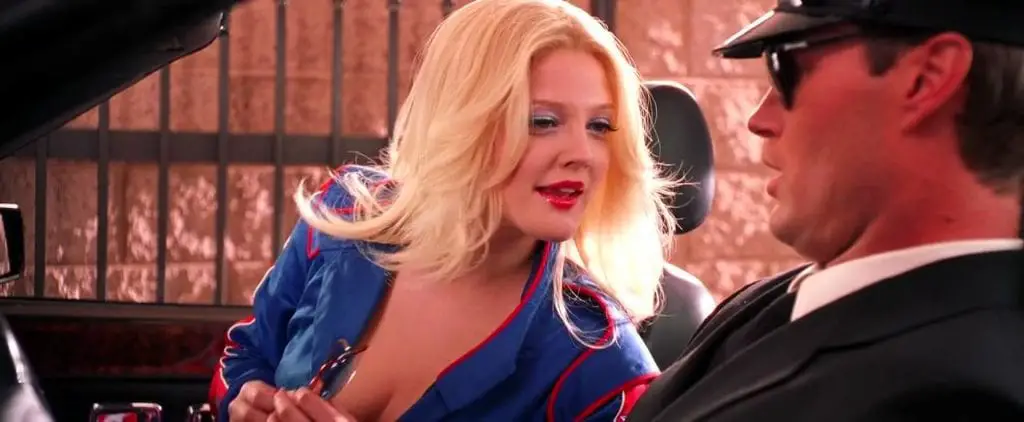
On the flip side, this film was written and directed by men and there is no doubt in my mind whatsoever that the real-world intentions don’t match these in-universe implications at all. The fanservice is all there. Dominatrix Alex is one such example, but we also get an abundance of Absolute Cleavage, Baywatch-style Slow-Mo, Toplessness from the Back, and a range of other completely unsubtle close-ups. The sex appeal of the angels is meant to be enjoyed by the audience in full.
This seemingly at-odds combination of in-universe command of sexual agency and real-world fanservice provides an interesting gap for queer female-identifying viewers like myself. And while there’s a slight tongue-in-cheek edge to the title of this article, all the same I say that this film influenced me as a young person with complete sincerity. The retrospective that queer people embark on after coming out to themselves is a unique and oftentimes amusing adventure. Thinking back on how I saw this movie a billion times in my early teens leaves my present-day self throwing my hands up in the air and groaning “It all makes sense!” If only things had been less confusing at the time.
And while this is funny to look back on, it’s also kind of sad and disappointing. Charlie’s Angels will always be dear to my heart, and while I believe the elements of feminist and female-empowering authenticity pick-up-able in the film are indeed authentic (example: I love that the angels don’t use guns), to place this movie on such a pedestal speaks volume about the lack of feminist, female-empowering, and queer films on the market.
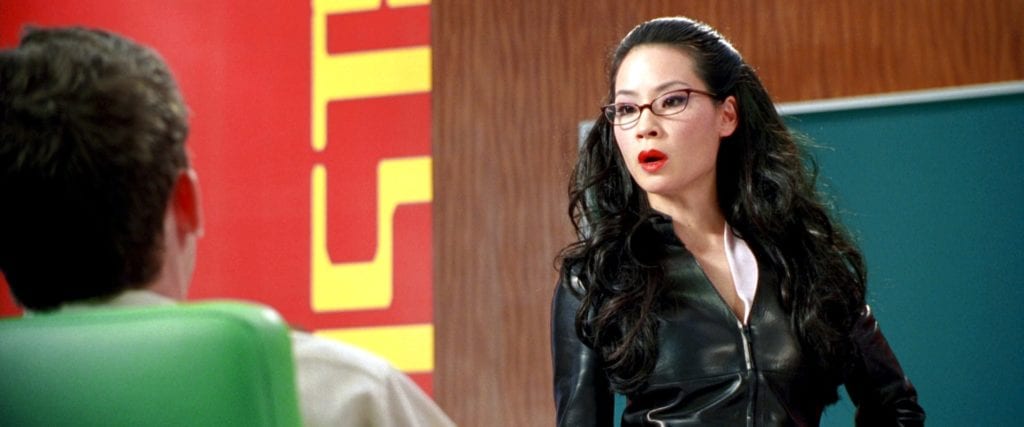
In living memory, my first exposure to a lesbian plot in film and television was a scandalous age-gap affair between two women on Desperate Housewives. I used to watch that show with my mom as a teenager, and during the seasons that featured this plot I once considered telling her that I didn’t want to watch the show anymore because that storyline made me uncomfortable. I realize now that my uncomfortableness stemmed not from the idea that two women being together was gross, but the way that this storyline was presented as both scandalous and wrong.
When there’s no representation for you out there, you’ve gotta find it yourself. I found myself in Charlie’s Angels, watching three badass ladies round-kick dudes to the face and moonwalk out of there. Charlie’s Angels is not just important to me because of the funny perspective I now have on my 12-year-old self who was crushing so damn hard on Lucy Liu and had no idea. It also serves as a symbol for how we can take any piece of media, no matter how problematic it may be, and find something in it that means something to us and represents a part of who we are.
My hope for Elizabeth Banks’ reboot of Charlie’s Angels is that we get a version of the angels that is legitimately told by women. With a female director at the helm, I imagine that we will see this in-universe characterization of women doing it for themselves actually framed in a real-world context of the same jam. I’d also like to see the angels not have to get pitted against another woman; because women don’t have to be catty to be powerful.
I’ll leave you to hope for that with me, alongside the reminder that Wonder Woman had the biggest female-directed opening weekend of all time. A new age is upon us.

